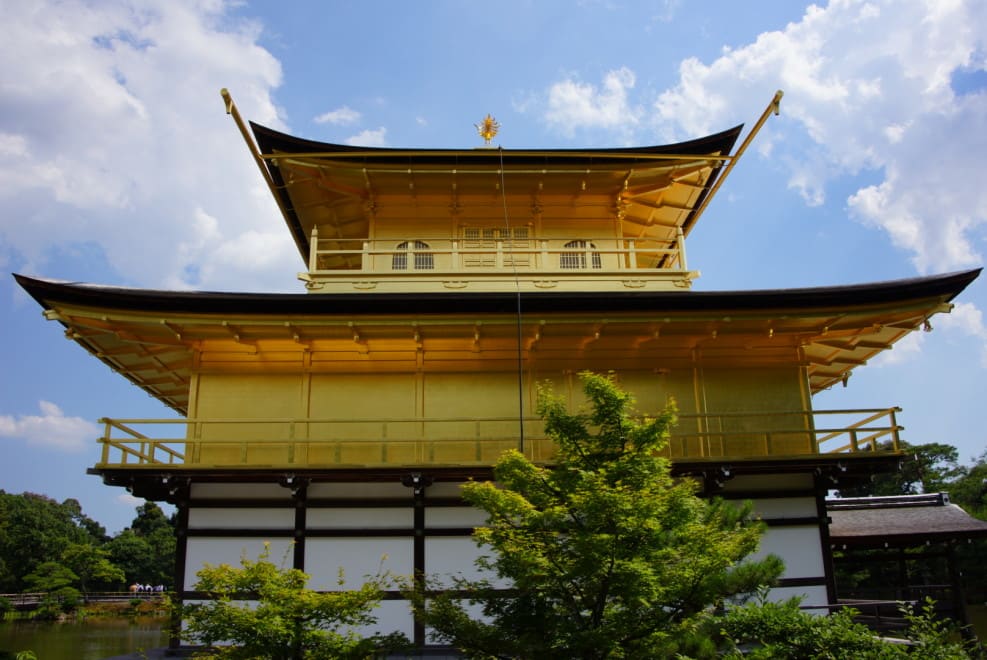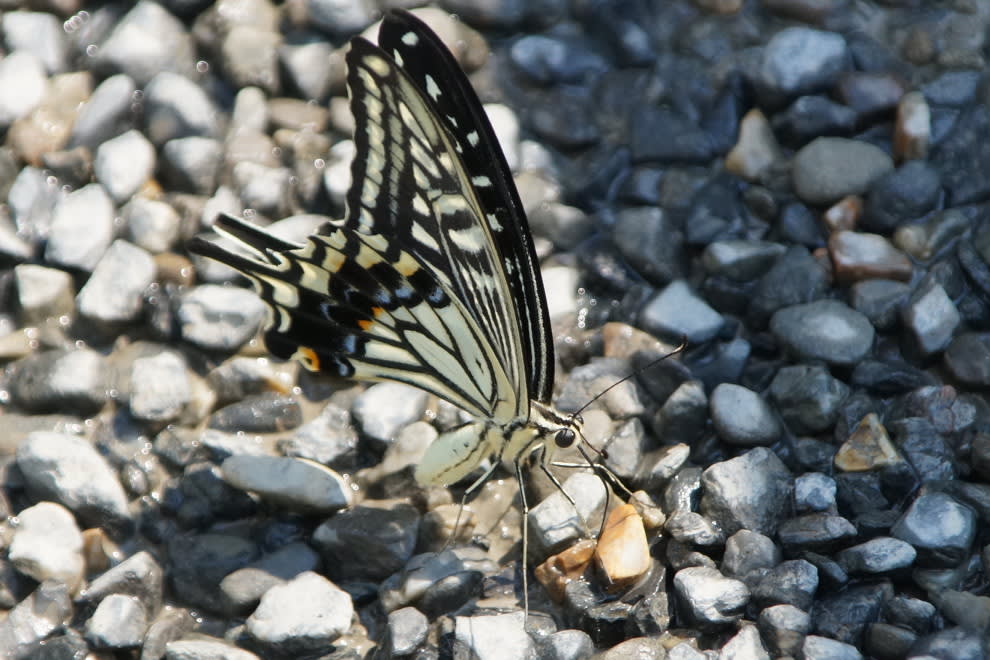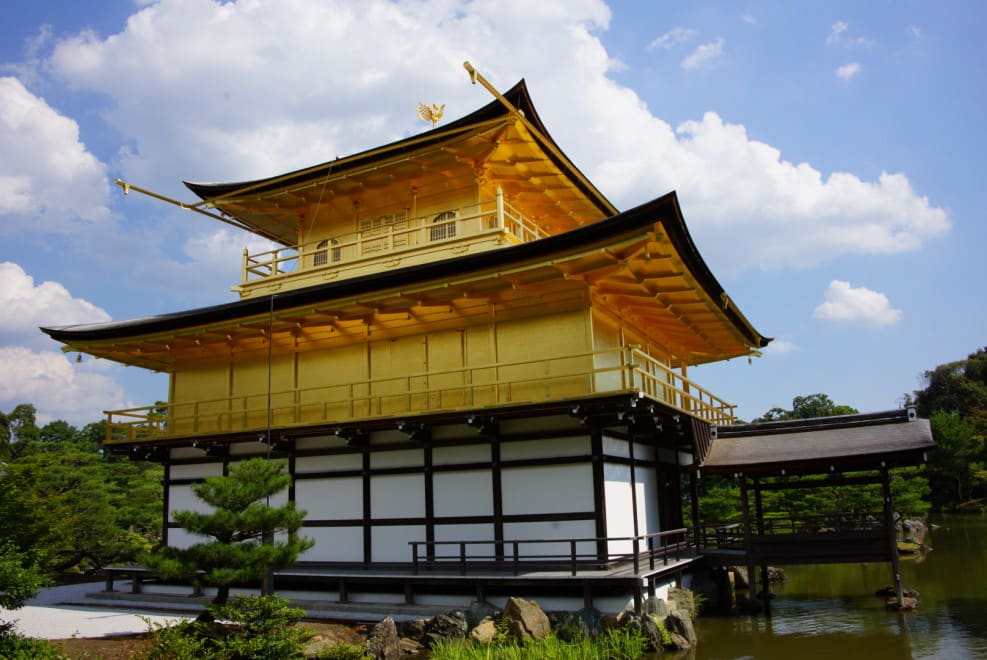

This article also proves that she is a "national treasure," as defined by Saicho, the supreme national treasure.
It is a must-read not only for the people of Japan but also for people around the world.
The emphasis in the text other than the headline is mine.
The Changing World Order as India and Russia Draw Closer
The world has entered an era of reordering the balance of power, with significant changes in international relations centered on oil and natural gas supply.
It is already globally recognized that China chose a pro-Russian line in its war of aggression against Ukraine.
But we must also pay attention to India, another great power on the Eurasian continent.
While China has not wavered one millimeter in its pro-Russian position, it has been careful to keep as low a profile as possible.
India, by contrast, has been deepening its pro-Russia diplomacy in a manner that is obvious to all.
The Indo-Pacific concept proposed by former Prime Minister Shinzo Abe has become a cornerstone of the U.S. strategy in Asia. Japan, the United States, and Australia have been promoting the Quadripartite Strategic Dialogue, or QUAD, which includes India and confronts China.
However, changes in India could cast a deep shadow over QUAD.
India's deeper allegiance to Russia could lead to Russia expanding its influence in Asia by leveraging its energy supplies.
If relations between the two countries deepen beyond the serious border disputes between India and China, Japan will be confronted with a more significant threat of Sino-Indian-Russian collaboration.
On June 30, Russian President Vladimir Putin signed an order that effectively seized "Sakhalin II," an unthinkable order to Japan and the rest of the world.
Japan has been cooperating with the public and private sectors in this natural gas development project off the coast of Sakhalin in the Far East.
It stated that it would continue this project even after the outbreak of the war of aggression against Ukraine.
The de facto seizure order is tantamount to a slap in the face to such a Japan.
What will happen to the world and Japan if Russia, which endorses a heavy-handed approach, China, which is equally heavy-handed but in fact much more cunning than Russia in taking other countries' interests and territory, and India, which is expected to overtake China in population in the near future and to become a democratic force in the region, build a single power?
On June 29, the North Atlantic Treaty Organization (NATO) announced its strategic concept to guide the next decade.
Prime Minister Fumio Kishida was the first Japanese prime minister to attend the NATO summit.
A Piece of Paper for Mr. Putin
The new Strategic Concept changed the previous definition of the relationship with Russia as a "strategic partnership" and redefined it as the "most important and direct threat" to the West.
The situation in the Indo-Pacific region "directly affects Europe and the Atlantic," and NATO will deepen dialogue and cooperation with those countries, he said.
China is a country that poses a "systemic challenge" to the West.
The statement showed the world that there are two spheres of influence with different values and that both sides are in irreconcilable conflict.
After NATO declared its determination, Indian Prime Minister Modi held a telephone conversation with Vladimir Putin two days later, on July 1, to discuss economic cooperation.
He announced that India would promote economic cooperation with Russia.
It can see as an indication of India's decision to strengthen its pro-Russian line in the construction of the international order after the war of aggression against Ukraine.
As is clear from the example of Sakhalin II, Russia will do whatever it takes to win.
International treaties and contracts are equivalent to scraps of paper to Mr. Putin.
The same is true of China, which only cares about its own interests.
In this very conflict between countries with different values, the West's efforts to gradually reduce imports of Russian oil and natural gas, or even to unite behind an import ban, will not go far enough to impose sufficient sanctions on Russia and stop its war of aggression against Ukraine.
The main reason Russia is holding up is that China and India have significantly increased their imports of Russian oil.
In India's case, last year's imports were 33,000 barrels per day.
In March of this year, after the outbreak of the war of aggression in Ukraine, it increased to 600,000 barrels per day, and in June, it further increased to 1.15 million barrels per day.
The Indian defense, led by Foreign Minister Jaishankar, is rough as follows.
The West (the U.S.) says to impose sanctions on Iran and Venezuela and restrict oil imports.
But the war of aggression against Ukraine has also raised international prices.
How will they meet domestic demand?
How will it curb the rise in oil prices and the resulting inflation?
In neighboring Sri Lanka, fuel shortages and inflation have led to widespread demonstrations and violence throughout the country.
India definitely wants to avoid the same kind of turmoil.
Russia is willing to accept a deal at a 30% discount from international prices.
Then it would be natural to accept it, he said.
This way of thinking is also advantageous for Russia.
Since the price of crude oil itself has risen to the $100 per barrel level, even a 30% discount would be profitable enough.
Ridiculous Policy
In this column, I have introduced the geopolitical logic of Nicholas Spykman, Brzezinski, and others.
Spykman argued roughly in the 1940s about the importance of Eurasia, the world's largest continent.
The potential of the entire Eurasian landmass, two and a half times the size and ten times the population (at that time) of the United States, could overwhelm the U.S. in the future."
Spykman and Brzezinski say that preventing the unification of Eurasia through a hostile alliance is the most crucial issue for the United States.
The same should be valid for Japan.
Soon, China will be the dominant power on the Eurasian continent, overpowering Russia.
What will happen if India joins it?
India has been deepening its relations with the former Soviet Union (Russia) since World War II.
Although it initially advocated non-alignment and took a neutral position, it has effectively committed itself to the other side's camp.
As a result, India has depended on Russia for almost 60% of its military equipment.
Moreover, if India strengthens its dependence on Russia for crude oil, it will not be able to stay away from Russia. Instead, the energy problem will strengthen the cooperative relationship between China, Russia, and India.
Is Prime Minister Kishida aware of the seriousness of this situation and the changing dynamics of the international community?
Japan is suffering from power shortages amid a heat wave.
It does not mean that Japan should rely on Russian energy or China-led energy supply systems.
Japan can generate enough electricity independently without relying on Russian natural gas or Chinese technology.
Nuclear power is supported by 100% domestic technology.
Many in the opposition say that nuclear power is dangerous.
However, if you visit the nuclear power plants, you will realize that the safety of Japan's nuclear power plants has reached the highest level in the world since the 3.11 accident.
The Kishida administration's economic policy, "Honebuto no hōshin," calls for a 10-year, 150 trillion yen investment in wind power generation as the primary source of decarbonization.
Like solar power, wind power cannot support Japan's energy needs.
In addition, China has the world's largest share of wind power generation facilities.
All of Japan's investment in wind power will be poured into China.
It is time to immediately review this foolish policy and vigorously promote the construction of new nuclear power plants, where Japan can demonstrate its capabilities.

*If even the suggestion of Ms. Sakurai, the supreme national treasure, falls on deaf ears, Fumio Kishida is not a statesman but a mere politician.
We must declare that he is not the right person to be the prime minister of Japan, the best country in the world, the country where the "turntable of civilization" is turning.
The Japanese people are different from the Okinawans who subscribe to the Okinawa Times and Ryukyu Shimpo, two newspapers clearly under Chinese and Korean manipulation, and who watch only NHK news programs, etc., unlike the Okinawans themselves, who are the information-weak.
Therefore, we will not be foolish enough to allow parties such as the Constitutional Democratic Party of Japan (DPJ) and the Communist Party of Japan (CPJ), which have a masochistic view of history and anti-Japanese ideology, to win the House of Councillors election.
And when China and Russia are colluding to invade Japan's territorial waters and threaten our country every day, we would not be foolish enough to let their proxies, the Constitutional Democratic Party of Japan (DPJ) and the Communist Party, win.
But that's Fumio Kishida for you.
You are a weak brain, Fumio Kishida, who is foolish enough to pour 150 trillion yen over ten years into wind power generation as the primary source of decarbonization.
Not only that, but we have no confidence in you, a fool talking with a straight face about policies that will benefit China and make Japan a pariah.
On the contrary, if it is your actual image that you remain a politician, a bigot who is nothing more than a puppet of a certain Kihara and the Ministry of Finance, then I advise you.
If you are a true patriot, I advise you on that premise.
You are not capable of protecting Japan from the crisis that exists today.
After the Upper House election, you must immediately resign as Prime Minister and be replaced by a Liberal Democratic Party statesman capable of protecting Japan.
This article continues*.

本論文も彼女が最澄が定義した「国宝」、至上の国宝であることを証明している。
日本国民のみならず世界中の人達が必読。
見出し以外の文中強調は私。
印露大接近で変わる世界の秩序
石油、天然ガスの供給を軸に国際関係に大変化が生じ、世界はパワーバランス再構築の時代に突入した。
中国がウクライナ侵略戦争の中で親ロシア路線を選んだのはすでに世界的な認識だ。
しかし、私たちはユーラシア大陸のもうひとつの大国、インドにも注目しなければならない。
中国は親ロシアの立ち位置に1ミリも揺るぎを見せない一方、なるべく目立たないように気遣っている。
対照的にインドは誰の目にも明らかな形で親ロシア外交を深めている。
安倍晋三元首相の提唱したインド・太平洋構想は米国のアジア戦略の要ともなり、日米豪はインドを含めて中国に対峙する四か国戦略対話、QUADを進めてきた。
だがインドの変化はQUADにも深刻な影を落としかねない。
インドがロシアにより深く肩入れすることで、エネルギー供給をテコにロシアがアジアに影響力を広げる可能性もある。
インドと中国の問には国境を巡って深刻な対立があるが、それを超えて両国の関係が深化すれば、日本は中印露の連携という、より大きな脅威と向き合うことになる。
プーチン露大統領は6月30日、「サハリン2」を事実上接収するという日本や世界の常識からは考えられない命令書に署名した。
極東サハリン沖のこの天然ガス開発事業に日本は官民挙げて協力体制を敷き、ウクライナ侵略戦争勃発後も、同事業を継続すると表明していた。
事実上の接収命令はこのような日本に平手打ちをくらわせたに等しい。
強引な手法を是とするロシア、同じように強引だが、実際にはロシアよりずっと狡猾な形で他国の権益や領土を奪う中国、近い将来には人口で中国を追い抜き、民主主義の力を発揮するかとも期待されたインドがひとつの勢力を築くとしたら、世界そして日本はどうなるか。
北大西洋条約機構(NATO)が今後10年の指針となる戦略概念を発表したのは6月29日だった。
岸田文雄首相は日本の首相として初めてそのNATO首脳会議に出席した。
プーチン氏にとっては紙くず
新戦略概念は、ロシアとの関係を「戦略的パートナーシップ」とした従前の定義を変えて、西側にとっての「最も重要で直接の脅威」と定義し直した。
インド・太平洋地域の情勢は「欧州・大西洋に直接影響する」として、NATOはそれら諸国と対話及び協力を深めるとし、中国については、西側に「体制上の挑戦」を突きつけている国だと明記した。
世界には価値観の異なる二つの勢力圏が存在し、双方が抜き差しならない対立関係に陥っているとの考えを世界に示したことになる。
インドのモディ首相は右のNATOの決意表明がなされると、2日後の7月1日にプーチン氏と電話会談を行い、経済協力を進めていく旨、発表したのだ。インドがウクライナ侵略戦争後の国際秩序構築において親露路線を強化するとの決断を示したと見てよいだろう。
サハリン2の例からも明らかなように、ロシアは勝つためには何でもする。
国際条約や国際契約はプーチン氏にとっては紙くずに等しい。
自国の権益しか考えない点において中国も全く同じである。
まさにこうした価値観を異にする国々との対立の中では、西側がロシア産原油や天然ガスの輸入を段階的に削減しようと努力しても、或いは輸入禁止に向けて団結を固めても、ロシアに十分な制裁を科し、ウクライナ侵略戦争をやめさせるところには中々辿りつけない。
ロシアが持ちこたえているのは、中国とインドがロシア産原油の輸入を大幅に増やしているのが主要な原因だ。
インドの場合、去年の輸入は日量3万3000バレルだった。
ウクライナ侵略戦争勃発後の今年3月には日量60万バレル、6月にはさらに115万バレルに増えた。
ジャイシャンカル外相をはじめとするインド側の弁明はざっと以下のようなものだ。
西側(米国)はイランやベネズエラに制裁を科し、原油輸入を制限せよと言う。
しかしウクライナ侵略戦争で国際価格も上がった。
どのようにして国内需要を満たすのか。
原油価格の上昇と、それに伴うインフレを如何にして抑えるのか。
隣国スリランカは燃料不足とインフレで全土にデモが広がり暴力行為が発生した。
同種の混乱はインドとしては絶対に避けたい。
ロシアは国際価格の3割引きの取引に応じてくれる。
ならばそれを受けるのは当然ではないか、と。
このような考え方は、ロシアにとつても旨味がある。
原油価格自体が1バレル=100ドル水準に上がっているため、3割引きでも十分な利益があるからだ。
馬鹿げた政策
私は当欄でこれまでニコラス・スパイクマンやブレジンスキーらの地政学の論理を紹介してきた。
スパイクマンは1940年代に地球上の最大の大陸、ユーラシアの重要性について、ざっとこう論じている。
「米国の2.5倍の広さと10倍の人口(当時)を持つユーラシア陸全体の潜在力は、将来アメリカを圧倒する可能性がある」
スパイクマンもブレジンスキーも、敵対的な同盟でユーラシア大陸が統一されるのを防ぐことがアメリカにとっての最重要課題だという。
日本にも同様のことが言えるはずだ。
ユ―ラシア大陸では近未来に中国が、ロシアを圧倒する形で主導権を握る存在になるだろう。
そこにインドが加わればどうなるか。
インドは戦後ずっと旧ソ連(ロシア)と関係を深めてきた。
元々非同盟を標榜して中立の立場をとってきたが、事実上向こうの陣営にコミットしてきた。
その結果、インドは軍備・装備のほぼ6割をロシアに依存して今日に至る。
その上ロシアへの原油依存を強めればインドはロシアから離れられなくなる。エネルギー問題が中露印の協力体制を強めるのである。
このような事態の深刻さ、国際社会の力学の変化に岸田首相は気がついているか。
日本は猛暑の中、電力不足に喘いでいる。
だからといってロシア産のエネルギーや中国主導のエネルギー供給体制を当てにするようなことはあってはならない。
ロシアの天然ガスや中国の技術に頼らずとも、わが国は自力で十分に電力を生み出せる。
100%国産の技術で支えられているのが原子力だ。
野党の多くは原発は危ないという。
しかし現場を取材すれば、3・11の事故を受けてわが国の原発の安全性が世界一の水準になっていることを実感するだろう。
岸田政権は経済政策「骨太の方針」で、脱炭素化実現のため風力発電を主力に10年間で150兆円も注ぎ込むという。
太陽光発電同様、風力発電で日本のエネルギー需要を支えるのは不可能だ。
おまけに風力の発電設備は中国が世界最大のシェアを持つ。
日本の風力発電の投資は全て中国に注ぎ込まれる。
こんな馬鹿げた政策は即刻見直して、日本の実力が発揮できる原子力発電の新増設を強く進めるときだ。
実は世界最高の国である日本、「文明のターンテーブル」が回っている国である日本の首相に相応しい人物ではないと断言せざるを得ない。
日本国民は、沖縄タイムスと琉球新報の二紙を購読、明らかに中国や朝鮮半島の工作下にある二紙に支配され、NHKの報道番組等だけを視聴している情報弱者そのものの沖縄県民とは違うから、今回の参議院選挙で立憲民主党や共産党等と言う、自虐史観、反日思想の塊で、中国や朝鮮半島の代理人政党であると言っても過言ではない政党を勝たせるような馬鹿な事はしない。
脱炭素化実現のため風力発電を主力に10年間で150兆円も注ぎ込む等と言う愚劣にして低能であるだけではなく、中国を利して日本を亡国化する政策を真顔で語っている様な愚劣な君に対する信任では全くないぞ。
この稿続く*

@onoda_kimi
いよいよ本日です!皆様ぜひ応援に来て頂けると嬉しいです!宜しくお願い致します!
引用ツイート
小野田紀美【参議院議員_岡山選挙区】
@onoda_kimi
安倍元総理@AbeShinzo が応援に来て下さることになりました!!
7月7日(木)19:00〜岡山市民会館にて小野田紀美個人演説会ゲスト。事前登録など不要ですのでぜひ皆様いらして下さい!!
https://twitter.com/onoda_kimi/status/1542439076904566787

@ProfShimada
太陽光利権勢力(含む中国共産党)に流れる「再エネ賦課金」を電気代に上乗せし税方式で取るのはおかしい。
太陽光パネルを支えたいと考える人々による寄付制とすべきだ。

This article also proves that he is the one and only journalist in the postwar world.
It is a must-read not only for Japanese citizens but also for people around the world.
Attack on Enemy Territory
The climax of the Russo-Japanese War was the Battle of the Sea of Japan between the United Fleet led by Heihachiro Togo and the Baltic Fleet, which was three times larger than the United Fleet.
Toru Hashimoto would have said, "We know we will lose. Togo should run away."
The New York Times thought so, too.
The reason was that both battleships were of European standard or copies, and the caliber of their main guns and the thickness of their armor were almost identical.
If so, victory or defeat would be decided by the number of battleships.
The Baltic Fleet, which had three times as many ships, seemed to have a threefold advantage.
Besides, the poorer side was a non-white nation not accustomed to naval battles.
However, the first report reached the editorial office: "It sank 12 major ships of the Baltic Fleet," while Togo's fleet was completely unharmed.
It is an incredible story.
So, they had the first news report written, "There are reports that a mutiny of sailors broke out in the Russian fleet, and they ejected the kingpin, causing it to sink itself."
The first report was so unbelievable that they were tempted to make such an escape.
Soon after, detailed reports arrived, and it learned that the Baltic Fleet had vanished.
The Western nations were even more shocked by Togo's strategy than by the fact that the Baltic Fleet had disappeared.
Since ancient times in Greece, it had been a form of naval warfare to sink a ship by plunging its bow into the flank of the opponent's ship.
For this purpose, the battleship's bow protruded like the chin of Antonio Inoki, and below the waterline was equipped with a ram to gouge out the opponent's belly.
However, Togo kept up a precise bombardment from several kilometers away without once making contact with the Russian fleet.
He used picric acid shells, which had three times the destructive power of Western artillery, and Oslavia, wearing thick iron armor, was the first to sink in flames.
The West did not have the technology to fill artillery shells with picric acid, which explodes immediately upon contact with iron.
Pakenham, a British spectator warfare officer, witnessed it from the battleship Asahi.
After receiving his detailed report, the British created the battleship "Dreadnought," a two-tiered battleship with three main guns that rivaled Togo's method of warfare.
The era of fighting with rams was over.
The birth of the dreadnought heralded the dawn of the new Taikan-kyoho era.
With the honor of naval power on the line, the British launched the super-dreadnought, which surpassed the dreadnought, and even the super battleship Prince of Wales, which surpassed the dreadnought, to create a more powerful battleship.
The ship was rushed from the Atlantic to Singapore at the request of F. Roosevelt.
It was six days before the attack on Pearl Harbor.
According to the deciphered code, the Japanese were going to attack Pearl Harbor and Malaya simultaneously.
The mission was to beat the enemy to the punch.
I will show the power of the giant warship cannon that Japan set as an example to that Japan.
It was not a battleship but a group of 96-type land attack aircraft that appeared in front of the commander of the British East Indies Fleet, who was uplifting and waiting.
The supposedly invincible ship and its companion ship, the armored cruiser Repulse, were soon sunk by thunderbolts and horizontal bombardment.
Japan taught in the actual battle that it was no longer the era of large warships.
Japan changed the shape of naval battles again.
The United States' material superiority barely caught up with Japan's updated naval battle system, and on the other hand, it was fortunate to crush Japan's carrier group on the Midway.
Japan, having lost its foothold in air power, bent the knee when it came to the liberation of Asia.
The glory of Japan, which had rewritten the history of naval battles twice, seemed to be over, but soon after the end of the war, the U.S. forces identified and captured the vast submarine I-401 off the coast of Sanriku.
It was the same size as the Virginia-class attack submarine that the U.S. is currently building.
In the hangar below the command post were three "Seiran" bombers.
Because of its performance, the Igo could reach the U.S. East Coast.
The Seiran could be launched from within U.S. territorial waters and destroy even the Pentagon.
The U.S. was surprised three times, and from this was born the strategic nuclear submarine concept, in which a nuclear submarine is hidden in deep water and launches missiles.
They are finally catching up with the wisdom of the Japanese.
The other day, Tenseijingo ridiculed "Japan clinging to the old big-ship big-arms principle" with a story about the battleship Yamato, which left on a one-way ticket to Okinawa.
I want to do something about the folly of allowing children to brush off such lies.

以下は本日発売された週刊新潮の掉尾を飾る高山正之の連載コラムからである。
本論文も彼が戦後の世界で唯一無二のジャーナリストであることを証明している。
日本国民のみならず世界中の人達が必読。
敵地攻撃
日露戦争のヤマ場は東郷平八郎率いる聯合艦隊とその三倍大きいバルチック艦隊がぶつかった日本海海戦だった。
橋下徹なら「負けは見えている。東郷は逃げるべきだ」と言うだろう。
ニューヨーク・タイムズもそう思った。
なぜなら双方の戦艦は欧州製の規格品かそのコピーで、主砲の口径も装甲の厚さもほぼ同じだった。
となれば勝敗は戦艦の数で決まる。
三倍の艦数を持つバルチック艦隊が三倍有利に思えた。
それに貧弱な方は海戦慣れしていない非白人国家だったし。
しかし編集局に届いた第一報はバルチック艦隊主要艦12隻が沈没」し、一方の東郷艦隊はまったくの無傷だという。
あり得ない話だ。
それで第一報に添えて「露艦隊で水兵の反乱が起きキングピンを拔いて自沈させたという情報もある」と書かせた。
そういう逃げを打ちたくなるほど第一報は信じがたいものだった。
やがて詳報が届き、バルチック艦隊はホントに消滅したことが判った。
その事実以上に欧米諸国は東郷の戦法に衝撃を受けた。
海戦はギリシヤの昔から艦首を相手艦の横腹に突っ込ませて沈めるのが形だった。
そのために戦艦の舳先にはアントニオ猪木の顎のようにせり出し、吃水線下には相手の船腹を抉る突起(衝角)を備えていた。
しかし東郷は露艦隊と一度も接触しないで遥か数キロ先から正確な砲撃を加え続けた。
それも西欧の三倍の破壊力のあるピクリン酸砲弾を使い、分厚い鉄の鎧を着たオスラビアがまず炎に包まれて沈んでいった。
欧米には鉄に触れたら即爆発するピクリン酸を砲弾に詰め込む技術はなかった。
英観戦武官ペケナムは戦艦朝日からそれを目撃した。
彼の詳細な報告を受けて英国は東郷の戦法に敵う三連装の主砲を二段組みにした戦艦「ドレッドノート」を生みだした。
衝角で戦う時代は終わった。
新しい大艦巨砲時代の幕開けを告げる弩級戦艦の誕生だった。
英国は海軍国の名誉をかけ、より強い戦艦を目指し弩級を凌ぐ超弩級を、さらにその上の超超弩級戦艦プリンス・オブ・ウェールズまで進水させた。
同艦はF・ルーズベルトの要請で大西洋から急ぎシンガポールに入った。
真珠湾攻撃の6日前だった。
解読した暗号では日本軍は真珠湾と同時にマレーも襲う。
その出鼻を叩くのが任務だった。
日本が手本を見せた大艦巨砲の威力をその日本相手に披露してやる。
高揚して待つフィリプス英東洋艦隊司令官の前に現れたのは戦艦ではなく96式陸攻機の群だった。
無敵のはずの同艦と僚艦の装甲巡洋艦レパルスは雷撃と水平爆撃を食らって間もなく沈んだ。
もはや大艦巨砲の時代ではないことを日本が実戦で教えた。
日本は海戦の形をまた変えたのだ。
物量の米国は辛うじて日本が更新した海戦方式に追いつき、ミッドウェーでは逆に日本の空母群を潰す幸運にも恵まれた。
航空戦力の足場を失った日本はアジア解放を果たすと膝を屈した。
海戦の歴史を二度書き換えた日本の栄光は終わったと思われたが、終戦から間もなく、米軍は三陸沖で巨大な潜水艦「伊401」を確認、拿捕した。
それは今、米が目下建造申のバージニア級攻撃型原潜と同じ大きさだった。
そして司令塔下の格納庫には3機の爆撃機「晴嵐」が格納されていた
伊号はその性能から米東海岸にも行ける。
米領海内から晴嵐を発進させ、ペンタゴンですら破壊できた。
米国は三たび驚き、ここから原潜を深海に潜ませてミサイルを発射する戦略原潜構想が生まれた。
やっと日本人の知恵に追いついたところだ
先日の天声人語は沖縄に片道切符で出た戦艦大和をネタに「古びた大艦巨砲主義にしがみついた日本」を嘲笑っていた。
こんな嘘を子供に筆写させる愚を何とかしたい。

https://twitter.com/GONZO41419181/status/1544524729997897729/photo/1
てつや
@tezheya
くつざわ亮治氏:「外国人留学生に年間約380万円も返済不要でくれてやって日本人学生には金を貸し付ける日本人差別を今すぐやめろ!」
スパイ防止法を制定せず、外国人犯罪は理由を示さないまま起訴せず、外国人留学生を超優遇し、移民政策を促進する…。
こんなバカげた政治は今すぐ変えよう! twitter.com/1218_nagi/stat…

@hkakeya
ビル・ゲイツは好きではないが、少なくとも日本の政治家や知識人よりは遥かに電力のことをよく理解している。
【動画あり】ビル・ゲイツ再エネをわらう「東京には2700万人いて台風は毎年3日くる。3日間の必要電力は22GWhだが、その電力を供給する太陽光の蓄電技術などない」
totalnewsjp.com
【動画あり】ビル・ゲイツ再エネをわらう「東京には2700万人いて台風は毎年3日くる。3日間の必要電力は22GWhだが、その電力を供給する太陽光の蓄電技術などない」
ビル・ゲイツ、自然エネルギーについて(パート1)司会「風力発電や太陽光発電のように、再生可能エネルギーのコストが下がり、バッテリ
http://totalnewsjp.com/2022/07/06/billgates-8/



@KadotaRyusho
防衛省がロシア海軍の情報収集艦1隻が沖ノ鳥島の接続水域を航行したと発表。
また同海軍の駆逐艦など3隻が対馬海峡を通過し、尖閣の久場島と大正島の間の接続水域を航行したとも。
活発化する中国海軍と連携か。
話し合いで何でも解決できるという野党は是非その意図を聞いてみて
nhk.or.jp
ロシア海軍艦艇 沖ノ鳥島付近の接続水域を航行 防衛省公表は初 | NHK
【NHK】防衛省は、ロシア海軍の艦艇が6日、日本最南端の沖ノ鳥島付近で、領海のすぐ外側にある接続水域を航行したと発表しました。ロ
https://www3.nhk.or.jp/news/html/20220706/k10013705601000.html

The Essence of Japanese Harmony as Known by the World's Best.
思い通りにならない議員は自民党でも潰せ、との体質に反発した“信念の人”小野田紀美氏に最後まで応援を
Top 10 real-time searches 2022/7/7, 0:12
辻元氏は秘書給与約1880万円をだまし取った罪で、懲役2年執行猶予5年の判決を受けており…要するに犯罪者
Watu wa Japan lazima waendelee kutazama Kishida na Biden kwa karibu.
Top 10 real-time searches 202/7/6, 22:22
ジョブズ氏は晩年、「きょうが人生最後の日だったら」と自問自答し、重大な決断をしてきたことを明かしている。
山や森を削って建設されているメガソーラー発電には反対。全国各地から悲鳴の声が僕の元にも届いています。

















